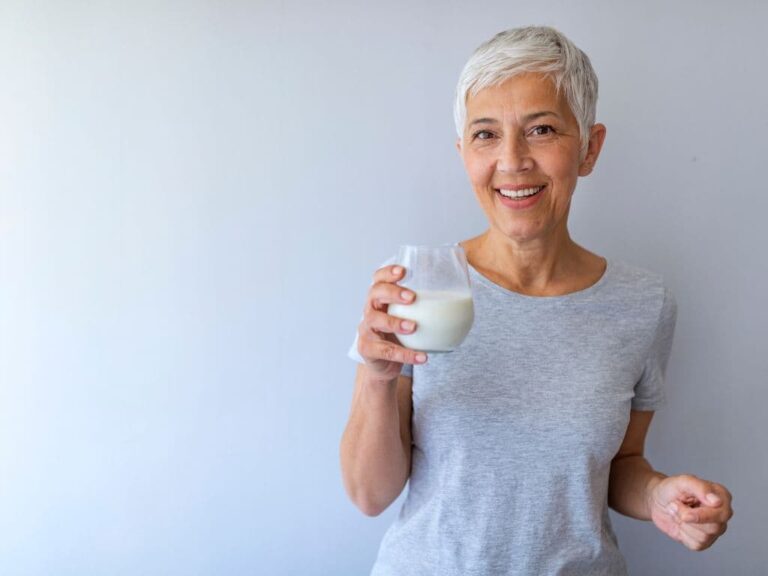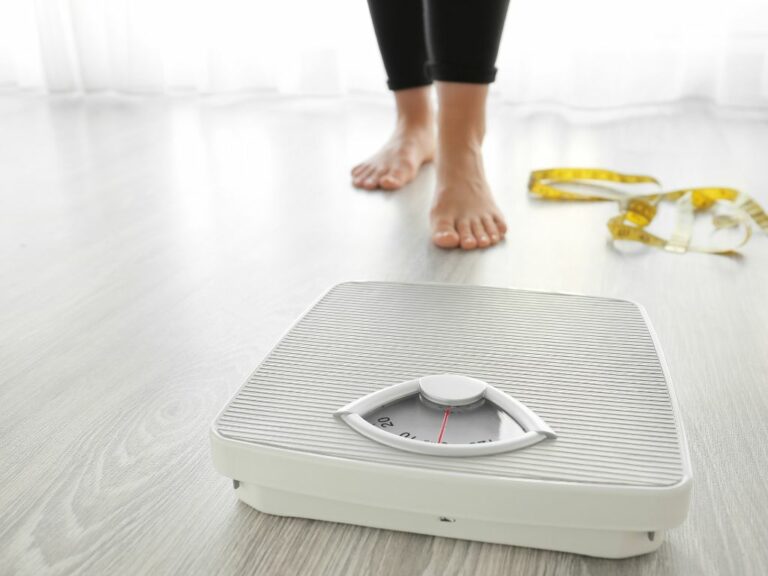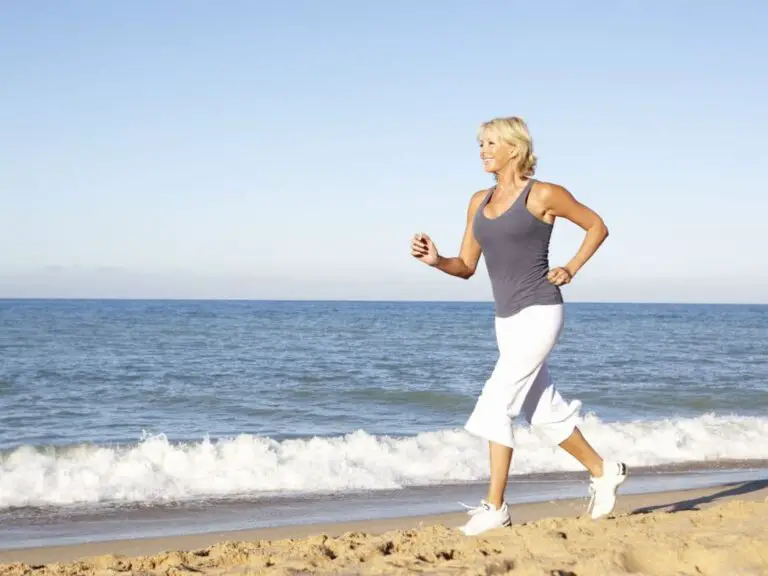Are Eggs a Good Source of Nutrition for Seniors?
Eggs are an excellent source of nutrition for seniors. Not only are they a good source of high-quality protein, but they also contain a variety of vitamins and minerals that can provide health benefits as we age.

Are Eggs Good For Seniors?
Yes, eggs are generally good for seniors due to their high nutritional value. They are an excellent source of high-quality protein, which is crucial in preventing sarcopenia, the age-related loss of muscle mass and strength. One large egg provides about 6 grams of protein, helping seniors meet their recommended daily protein intake.
Eggs also contain a variety of vitamins and minerals beneficial for seniors’ health. They provide around 10% of the recommended daily value of vitamin D, which supports bone health and immune function. Other nutrients found in eggs include vitamin A, selenium, choline, iron, zinc, potassium, calcium among others.
The consumption of eggs can improve muscle health, bone health and immunity in seniors. The high-quality protein and amino acid leucine in eggs stimulate muscle protein synthesis thereby preventing sarcopenia. Eggs also provide an easily absorbed source of vitamin D and calcium which are essential for building and maintaining strong bones. Furthermore, the vitamin D content in eggs helps regulate the immune system.
However, there are potential risks associated with consuming raw or undercooked eggs due to the possibility of foodborne illness from bacteria like Salmonella. Therefore it’s important for seniors to cook eggs thoroughly using methods such as hard boiling until both yolk and white are solid or frying/scrambling over medium/high heat until no visible liquid egg remains.
Eggs can be incorporated into many dishes suitable for seniors including scrambled eggs with cheese or avocado toppings; veggie egg muffins; frittatas; quiches; or simply hard boiled.
Can Eggs Be Bad For Seniors?
No, eggs are generally not bad for seniors when consumed in moderation as part of a balanced diet. Here are some key points on the benefits and potential risks of egg consumption for seniors:
- Eggs are a nutritious food that contain high-quality protein, vitamin D, choline, antioxidants, and other vitamins and minerals important for senior health. The protein can help maintain muscle mass, vitamin D supports bone and immune health, and choline benefits brain function.
- Concerns about eggs increasing cholesterol are outdated. Research shows eating 1-3 eggs per day has little impact on cholesterol levels or heart disease risk for most healthy seniors.
- Eggs should be cooked thoroughly to avoid risks of salmonella poisoning. Foodborne illness from raw or undercooked eggs can be dangerous for older adults. Hard boiling, poaching, frying, baking, and scrambling eggs are safe cooking methods.
- For seniors with diabetes, kidney disease, or high cholesterol, egg intake may need to be limited. No more than 1 egg yolk per day is recommended, but egg whites can be eaten freely. These individuals should consult their doctor.
- Eggs are unlikely to cause digestion issues for most seniors if consumed in moderation. Some find eggs easier to digest when thoroughly cooked. Limiting intake to 1 whole egg a day may help.
- The cholesterol and saturated fat in egg yolks may pose issues for seniors at high risk of heart disease. For these individuals, eggs whites or egg substitutes are healthier options.
So for most healthy seniors, eggs can be safely enjoyed as part of a balanced diet. Just be mindful of portion size and preparation, and consult a doctor if you have an existing medical condition that requires dietary restrictions.
What Nutrients in Eggs Are Beneficial for Seniors?
Eggs contain protein, vitamin D, omega-3 fatty acids, choline, antioxidantslike lutein and zeaxanthin, and various other vitamins and minerals. Many of these nutrients play important roles in supporting the health of seniors.
How Much Protein in Eggs Is Beneficial for Seniors?
The high-quality protein in eggs contains all 9 essential amino acids, making it a complete protein. For seniors, getting adequate protein is important to help prevent sarcopenia, which is the age-related loss of muscle mass and strength. One large egg provides about 6 grams of protein, which can help seniors meet their recommended daily protein intake.
What Vitamins and Minerals Are Found in Eggs That Are Beneficial for Seniors?
Eggs are a good source of vitamin D, providing around 10% of the recommended daily value. Many seniors are deficient in vitamin D, which is needed to support bone health and immune function. Eggs also contain vitamin A, selenium, choline, iron, zinc, potassium, calcium, and other vitamins and minerals that support overall health.
How Can Eggs Improve the Health of Seniors?
Consuming eggs regularly can provide several health benefits for seniors in areas like muscle health, bone health, immunity, eyesight, and more.
How Can Eggs Help Reduce the Risk of Sarcopenia in Seniors?
The high-quality protein and amino acid leucine in eggs can help stimulate muscle protein synthesis. This makes eggs an excellent food for helping to prevent and treat sarcopenia, which causes loss of muscle mass and strength. Eating eggs can help seniors build and maintain muscle.
How Can Eggs Improve Bone Health in Seniors?
Eggs provide an easily absorbed source of vitamin D and calcium, two nutrients essential for building and maintaining strong bones. Adequate vitamin D and calcium intake can improve bone mineral density and reduce fracture risk in seniors.
Can Eggs Boost the Immune System in Seniors?
The vitamin D in eggs helps regulate the immune system. Vitamin D deficiency can negatively affect immune function and increase susceptibility to illness. Eating eggs to increase vitamin D levels can potentially give the immune system a boost.
Are There Any Risks Associated With Eating Eggs for Seniors?
While eggs offer many benefits, there are some potential risks to be aware of when preparing and consuming eggs.
What Are the Risks of Eating Raw or Undercooked Eggs for Seniors?
Seniors should avoid eating raw or undercooked eggs due to the potential for foodborne illness. Raw eggs can contain Salmonella and other bacteria that are especially dangerous for older adults.
How Can Food Poisoning Occur From Eating Raw or Undercooked Eggs?
Eating raw or undercooked eggs introduces bacteria like Salmonella into the digestive system. This can cause symptoms like vomiting, diarrhea, abdominal cramps, fever, and more. Seniors are at higher risk for severe complications from food poisoning compared to younger adults.
How Can Eggs Be Cooked Safely for Seniors?
To reduce the risks of foodborne illness, it’s important for seniors to cook eggs thoroughly.
What Are the Safest Cooking Methods for Preparing Eggs for Seniors?
The safest ways seniors can cook eggs include:
- Hard boiling eggs until the yolk and white are solid
- Poaching eggs until the white is completely set and yolk is thickened
- Frying or scrambling eggs over medium/high heat until no visible liquid egg remains
- Baking eggs in casseroles and dishes until they reach 160°F
All of these methods ensure the egg is cooked through to a safe temperature that kills any potential bacteria present. Undercooked runny yolks should be avoided.
What Are Some Healthy and Easy Egg Recipes for Seniors?
Eggs are a versatile ingredient that can be incorporated into many dishes suitable for seniors. Here are some simple, nutritious recipe ideas:
Scrambled Eggs
Whisk 2 eggs with 2 tbsp milk, salt and pepper. Cook over medium heat while stirring occasionally until set. Top with cheese, salsa or avocado for extra nutrition.
Veggie Egg Muffins
Grease a muffin tin and divide whisked eggs between cups. Add diced veggies like spinach, tomatoes, peppers. Bake at 350°F for 15-20 minutes.
Frittata
Saute onions, potatoes and veggies in olive oil. Pour in whisked eggs and cook until edges are set. Finish under the broiler for 2-3 minutes until puffed and golden brown.
Quiche
Line a pie dish with crust. Fill with whisked eggs, milk or cream, diced veggies, cooked meat, cheese. Bake at 350°F until eggs are set, about 30 minutes.
Hard Boiled Eggs
Place eggs in a pot, cover with 1 inch of water. Bring to a boil, then remove from heat. Let sit 12 minutes, then rinse in cool water. Peel and enjoy.
How Many Eggs Can Seniors Safely Eat Per Day?
According to dietary guidelines, most healthy seniors can safely eat 1 whole egg per day without impacting cholesterol levels or health. Some can tolerate up to 3 eggs daily as part of a nutritious diet. It’s best to ask your doctor about specific egg intake recommendations.
Are Eggs Bad for Cholesterol, Kidney Health, or Digestion in Seniors?
In the past, eggs were avoided due to cholesterol concerns. But research shows eggs can be part of a healthy diet for most seniors when consumed in moderation.
How Can Eggs Impact Cholesterol Levels in Seniors?
While the yolks do contain dietary cholesterol, consumption of 1-3 eggs per day has minimal impact on blood cholesterol for most people. However, those with diabetes or high cholesterol should ask their doctor about individual egg recommendations.
Are Eggs Bad for Kidney Health in Seniors?
For seniors with normal kidney function, eggs in moderation are fine. But for those with chronic kidney disease, limiting egg yolks and cholesterol may be recommended. Consult a dietician or doctor for advice based on kidney function.
Can Eggs Impact Digestion in Seniors?
Eggs are usually well tolerated by most seniors. Those with sensitivities can cook the whites and yolks thoroughly to make them easier to digest. Limiting egg intake to 1 per day may also help prevent digestive issues.
Overall, eggs can be a nutritious addition to a senior’s diet when prepared properly and consumed in reasonable amounts. Discuss egg intake with your doctor and follow safety precautions to enjoy eggs while minimizing risks. Incorporate eggs into healthy recipes to boost your nutritional intake as you age.
Frequently Asked Questions
-
Why do Meals on Wheels do what they do?
Meals on Wheels offers a nutritious meal for frail and elderly people as well as people with disabilities, their caregivers, and their families. This service does not require you to have a means test. People can remain independent for longer periods of time with Meals on Wheels. While most people would prefer to stay at home, in some cases they may need assistance.
-
What is the definition of soup kitchens?
A soup kitchen is an establishment that provides basic dietary necessities (like soup) for the hungry.
-
What can I make for lunch for elderly people?
Sandwiches and wraps can be made in many different ways, so you have many options for how to incorporate protein and veggies into the mid-day meals of your loved one. There are many delicious and nutritious options available, including salmon, greens, chicken, beans and eggs.
-
Which of the following is a feature of vitamin D nutrition in the elderly?
What is the most important feature of vitamin-D nutrition for the elderly? The majority of elderly get vitamin D nutrition at levels that are close to the RDA. The ability of the kidneys to convert vitamin D into active form is reduced by aging. Due to reduced excretion of vitamin D by the kidneys, the RDA for vitamin A in seniors is lower.
-
Who are target audience for Meals on Wheels?
Meals on Wheels is for people with reduced mobility who have difficulty shopping for food and cooking. The majority of the time, Meals on Wheels is available to adults 60 years and over. However, program requirements may vary.
-
Who qualifies for Meals on Wheels NZ?
Meals on Wheels is available to clients older than 65 who cannot cook a hot meal due to a mental or physical illness. Volunteers deliver hot meals and dessert to clients’ homes Monday through Friday.
-
Is boiled egg good for elderly people?
Eggs can be inexpensive and readily available, and they are a good source of protein of high quality. They also contain significant amounts of leucine which is an essential amino acid for muscle synthesis.
-
What should a 70 year old be eating?
You can eat a variety of food from each of the five food categories: lots of colorful vegetables and legumes/beans, fruit, grain (cereal), foods that are mostly wholegrain or high in fibre, lean meats, poultry, fish and eggs, as well as nuts, seeds, milk, yogurt, and cheese, with a lot of reduced fat.
-
Does Meals on Wheels do low sodium meals?
Meals on Wheels offers a variety of meal plans that can be modified to meet low-sodium dietary requirements.
-
Who qualifies for Meals on Wheels in Arizona?
The Home Delivered Meal Program may be eligible for candidates who are at least 60 years old and those with disabilities between 18-19 years.
-
What is the best diet for a 70 year old woman?
Fruits, vegetables, legumes and whole grains are all considered beneficial foods. Older adults may need to be careful about how much food they eat.
-
How can I help seniors in my area?
Senior Companions, a Senior Corps program that is open to volunteers aged 55+, allows you to volunteer as a Senior Companions. Volunteers can help seniors age 55+ with their daily activities, helping them remain independent in their homes and maintaining independence. Volunteers can help seniors with daily tasks through organisations like the National Council on Aging.
-
What do you mean by fast food outlets?
This is a food retailing establishment that offers a limited menu and precooked, or quick-prepared food. It also has take-out services.
-
How many meals on wheels locations are there?
Through our nationwide network of over 5,000 independent programs, Meals on Wheels is able to operate in almost every American community.
-
What is a congregate meal group of answer choices?
Senior citizens can have meals delivered to their home by home-delivered service providers. Senior citizens can socialize in group setting, like senior centers.






